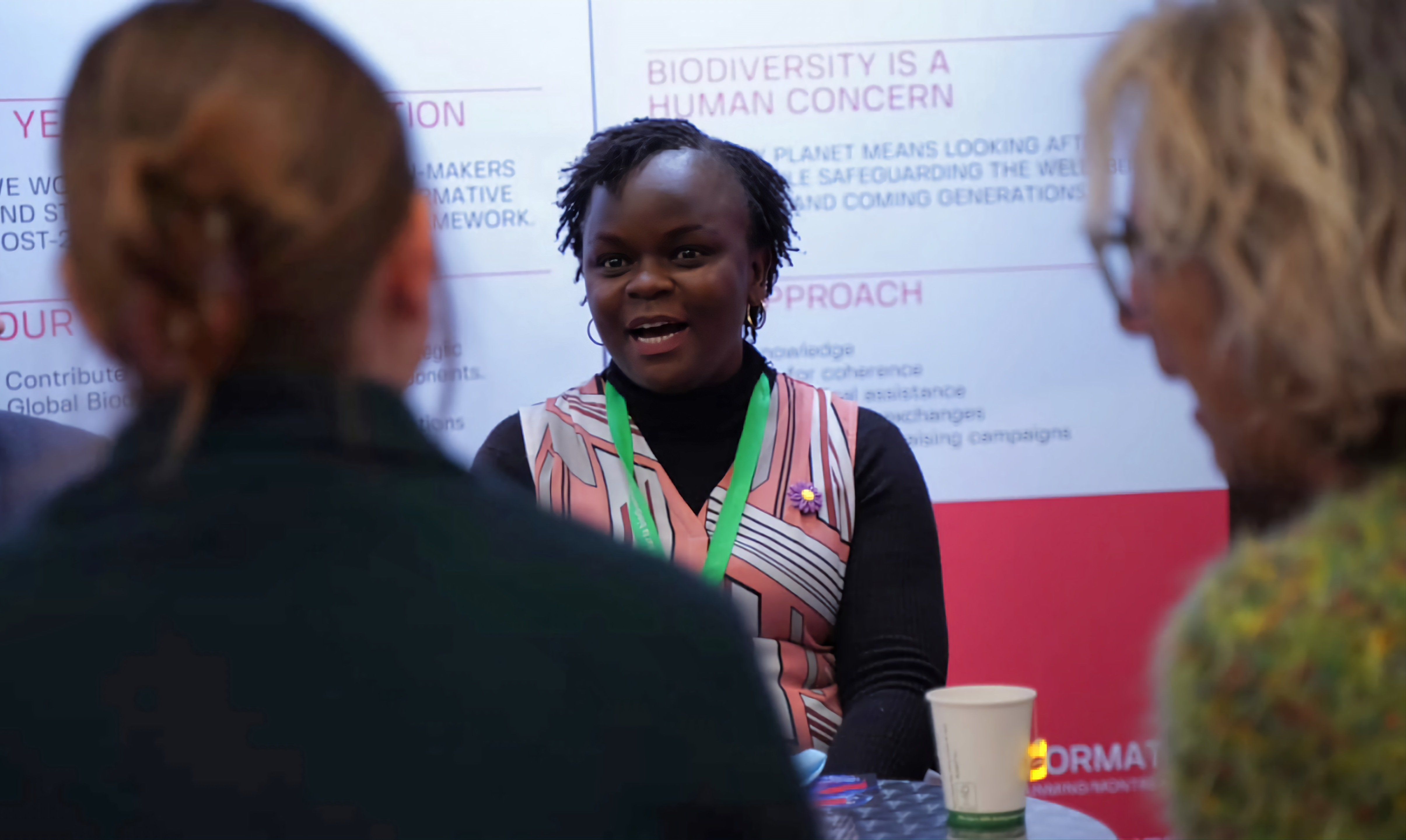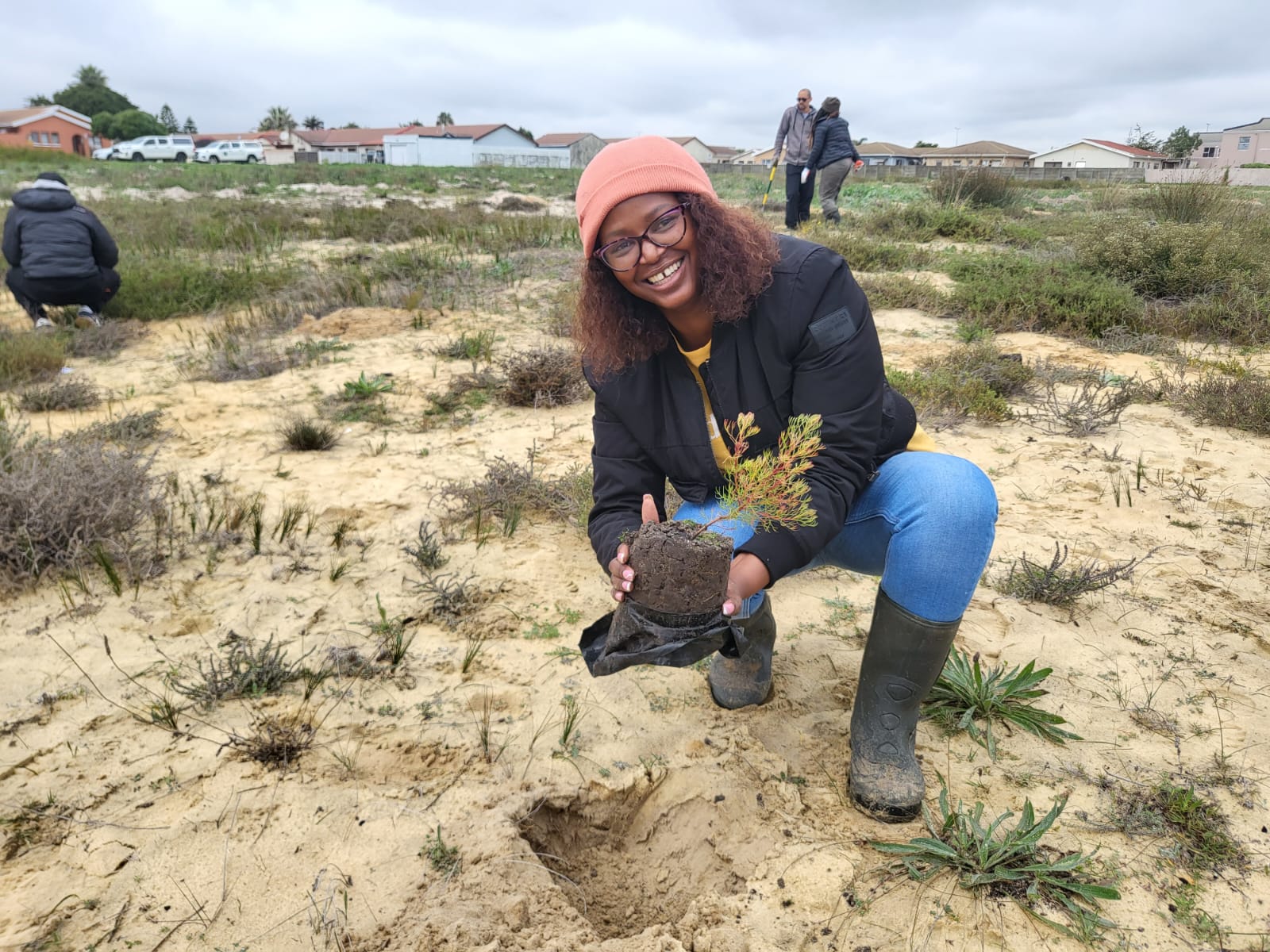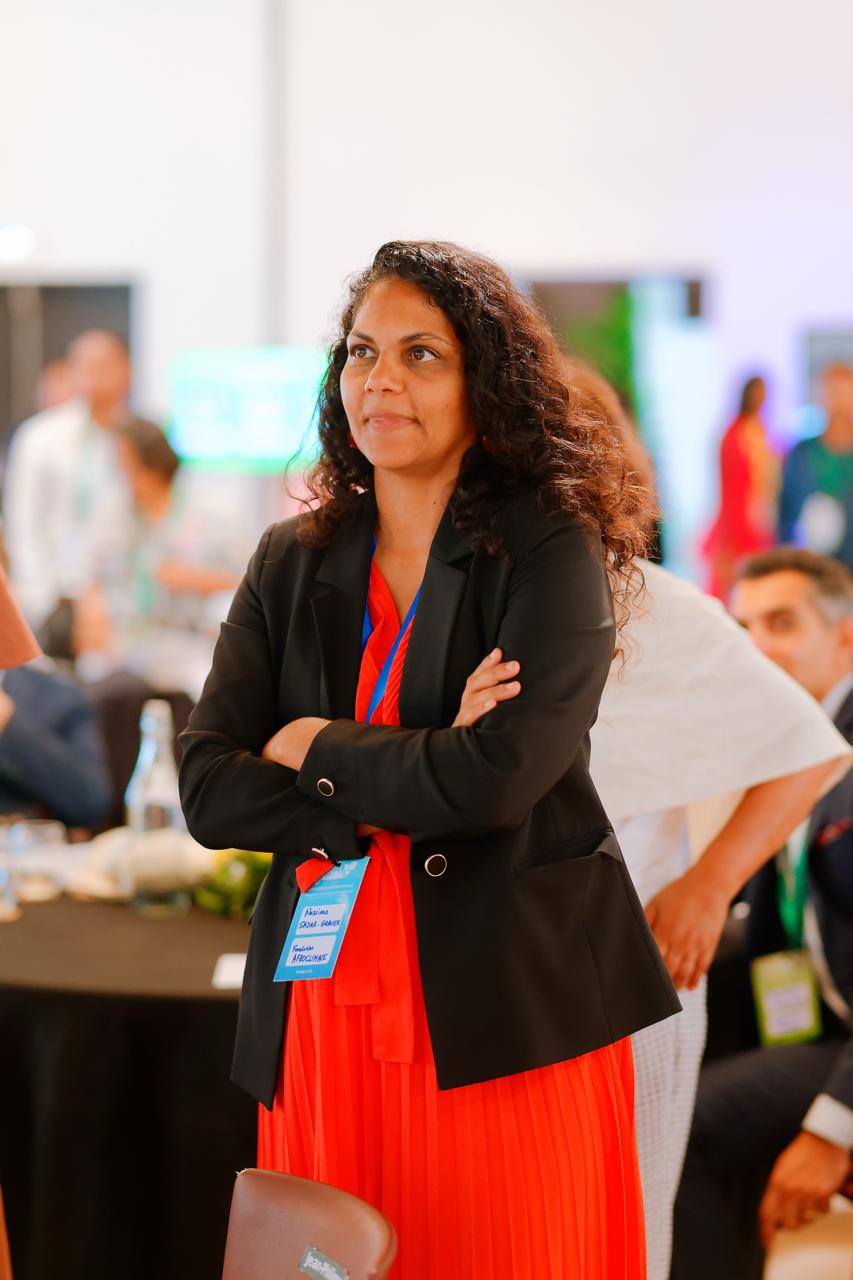We can learn a lot from traditional ways of conserving the environment. You know how people have lived in harmony with wildlife for centuries? That is education. And it is not in our books.
Olivia Adhiambo felt a deep calling for social justice from her very early days. As she navigated her career path, this principle rose to prominence, guiding her work and driving her decisions. One of those decisions was to specialise in the interface of climate, biodiversity, and people.
She currently serves as the Climate Policy Director at Wildlife Works, an organisation founded on the belief that preserving wildlife requires uplifting local communities that coexist with these environments. Her mission is to bridge gaps between disconnected parties and elevate the perspectives of those marginalised in crucial conversations.
The Women for the Environment 2023 Fellow shares her journey with Damaris Agweyu.

Olivia, what is your definition of success?
That is something I am constantly redefining. There was a time when it was all about acquiring material possessions and living a fancy life. That definition no longer resonates.
Today, success, for me, is about making a positive impact on the people around me and engaging in activities that genuinely matter to me. I believe in giving back, whether it's through mentorship, acts of generosity, or sharing resources.
Success is also when I've raised my children to pursue their dreams, when I have cultivated love in my life, and when I have enough.
What does it mean to have enough?
I'm still trying to define what "enough" means financially in terms of numbers and timelines because it's easy to fall into the trap of always wanting more.
Ultimately, I want to live a balanced life where my physical, spiritual and emotional well-being are well-tended to. I used to obsess over societal expectations, such as living and being in a certain way. But nowadays, I'm more focused on achieving balance—this means keeping an active life through joyful movement and enjoying everything in moderation. I no longer obsess about what people think or say about me.
What brings you joy?
I love swimming. There's something serene about moving in the silence of the water. I love dancing at home with my kids. I find a lot of solace in hikes. When I'm out there walking around nature, I slow down; my mind is at ease, and I find my balance. I also enjoy long conversations.
What sorts of conversations do you enjoy?
It depends on the company. With friends, I have heart-to-heart conversations. But in more intellectual or professional settings, philosophical conversations are incredibly stimulating. Discussing current affairs is also interesting to me.
Tell me about your journey into the world of conservation.
Growing up adjacent to Kibera—the biggest urban slum in Nairobi—and seeing many people struggling to get by, I always wanted to give back and change people's lives and stories. So, after finishing high school, I immediately started volunteering as a primary school teacher. It was a very fulfilling job, but it was also difficult to witness the lack of resources and support in the schools. I knew that somehow, somewhere along the line, I would always go back to that.
Interestingly, I initially wanted to pursue a career in law, but I also loved to teach. When I went to university, I was selected to do an undergraduate degree in environmental science. I had no interest in that. But my brother, who was always ahead of his time, knew all about things like climate change and global warming—long before they gained widespread attention.
He told me, "This is a big deal; it's the best thing you can do now". I took his advice and fell in love.
I fell in love because sitting in a classroom all day wasn't my thing, so being out in the field exploring forests and collecting water and soil samples was perfect.
In my third year, I did my internship with a forestry NGO, where I got an opportunity to be mentored by some of the greatest minds in the forestry sector. As I interacted with farmers and community forest associations, I became intrigued by the interconnectedness of environmental conservation and sustainable development.
As soon as I completed my undergraduate degree, I felt the pressure to find my place in the workforce and settle into adult life. My first job offer came from an insurance company, and I accepted it. However, the endless paperwork and mundane office routine left me feeling miserable and unfulfilled. Two months into the job, I got an opportunity to work as an intern with one of my mentors. Here I deepened my knowledge about research, community engagement and policy advocacy.
Fewer things have tugged at my heartstrings than working in a space to do with forests.
I saw the communities' deep connection with the forests sentimentally and economically. I saw the struggle by the government to protect forests and the constant threat of eviction of these communities from the forests. I was drawn to understanding the legal requirements surrounding forestry and conservation and worked on simplifying complex legislation—translating it into Swahili for easier comprehension. But as I engaged more deeply with forest communities, I realised I was presenting a one-sided narrative. In focusing on enforcing government regulations, I neglected to consider the communities' perspectives, needs, and inherent rights to the forest. This troubled me deeply. I questioned whether I was genuinely making a positive impact and whether the laws in place were just and equitable.
Over the next decade, I constantly searched for a better, more effective solution for forest conservation and worked in diverse contexts that allowed me to explore different approaches to conservation.
In my current role, I am exploring market-based solutions to conservation. The timing of starting this role was perfect because it coincided with my leadership journey with WE Africa. The insights and encouragement from the leadership program helped me recognise that this path was right for me. I appreciate the fact that this role gives me room to explore the social justice aspect of my identity, which has always been a big part of my story.
If you had the carte blanche to enact a policy in the African context that serves both conservation and people, what would it be?
I would draw inspiration from successful approaches in regions like South America, where communities have been given agency to determine the laws that best serve their interests and the environment. Instead of resorting to evictions, I would seek collaborative solutions that respect the needs and aspirations of communities.
This would be done in tandem with education. Keeping in mind that education is not just what we read in the books. We can learn a lot from traditional ways of conserving the environment. You know how people have lived in harmony with wildlife for centuries? That is education. And it is not in our books.
What is your philosophy towards life?
Finding balance. Avoid the extremes—everything in moderation. If we don't find balance, we'll get to the finish line and realise that we sacrificed or lost the most important things.

As a mum and career woman, do you feel like you've struck a balance in your life?
It's a constant work in progress and hasn't always been easy. I used to carry a lot of mum guilt because I felt like loving my career was equivalent to neglecting my parenting duties. But I've worked through those emotions, and I now give myself lots of grace whenever the guilt comes up.
One thing I now practise, especially before going on a trip that will take me away for extended periods, is open communication with my children about my work commitments. I'll explain that I'm doing something that I love. I've realised that we sometimes underestimate our children. They have a vast capacity to understand, empathise, and even recover. Yeah, I'm giving myself a lot of grace nowadays, more than I used to.
I used to believe that balance had to be a rigid 50/50 division. So if I spent 8 hours at work, I'd have to figure out where the 8 hours for my family would come from. Yet, we only have so much time. Nowadays, I understand that balance is fluid and adaptable. Some days, work may demand 70% of my time, so my family gets 30%. On other days, my family takes priority, which means flipping the coin where they get 70% and work gets 30%. This outlook has been so liberating.
Without forgetting the importance of time for yourself as well.
This came out strongly in my WE Africa journey. Mamahood, Wifehood, and Careerhood were more important than Oliviahood. But I've realised I matter—not because of any external achievements or my roles, but just because I exist.
During our retreat in Namibia, I realised how much I had neglected myself and how essential it is to affirm my worth. So these days, I start and end each day with affirmations, reminding myself that I matter. I don't need an explanation after those two words—I matter. I belong. That's it.
This has skyrocketed my confidence and empowered me to show up fully in every aspect of my life. I no longer feel intimidated by others or overshadowed by their achievements. Instead, I embrace my worth, acknowledge my strengths and give myself grace.
I've also learned to confront and process my emotional traumas, including the losses I've experienced—my parents who always affirmed me, the pregnancies I had before getting my two daughters... I've been able to lean into moments when I need to feel and grieve these losses.
Tell me more about your parents affirming you and how that shaped your life.
I had a kickass mum. She was an orphan from a very underprivileged family. Relatives took her in and gave her very little education. When I look back at all she was able to achieve, I marvel at how she overcame so many barriers to become a career woman and mother of five children.
She always cheered me and my siblings on and told us we could do anything and go anywhere we wanted. She was a very optimistic, fun-loving woman and remains my inspiration to this day.
My father was a staunch advocate for gender equality. He believed in providing his daughters the same opportunities as his sons without discrimination. I think with those kinds of parents, you just get wings.
Along the way, I've also encountered individuals who have "dropped keys" of opportunity, wisdom, and encouragement into my life. This has further reaffirmed my belief in myself and encouraged me to keep pushing boundaries.
That speaks a lot to the power of being affirmed.
Even more powerful are the words you say to yourself.
How do you affirm yourself?
Every day, I remind myself of my worthiness and belonging. I envision what I desire and speak it into my life. I tell myself that I deserve abundance and love.
What impact do you want your work to have?
I can get into many decision-making rooms, and I want to use that privilege to raise the voices of communities living adjacent to forests. I want to spotlight what is not working and open up conversations around what can work. I'm not carrying all the solutions in the world, but I want to use my voice to help find solutions in natural resource conservation—solutions that work for people and for nature.
***
This interview is part of a series profiling the stories of the 2023 WE Africa leadership programme fellows, African women in the environmental conservation sector who are showing up with a strong back, soft front, and wild heart.




